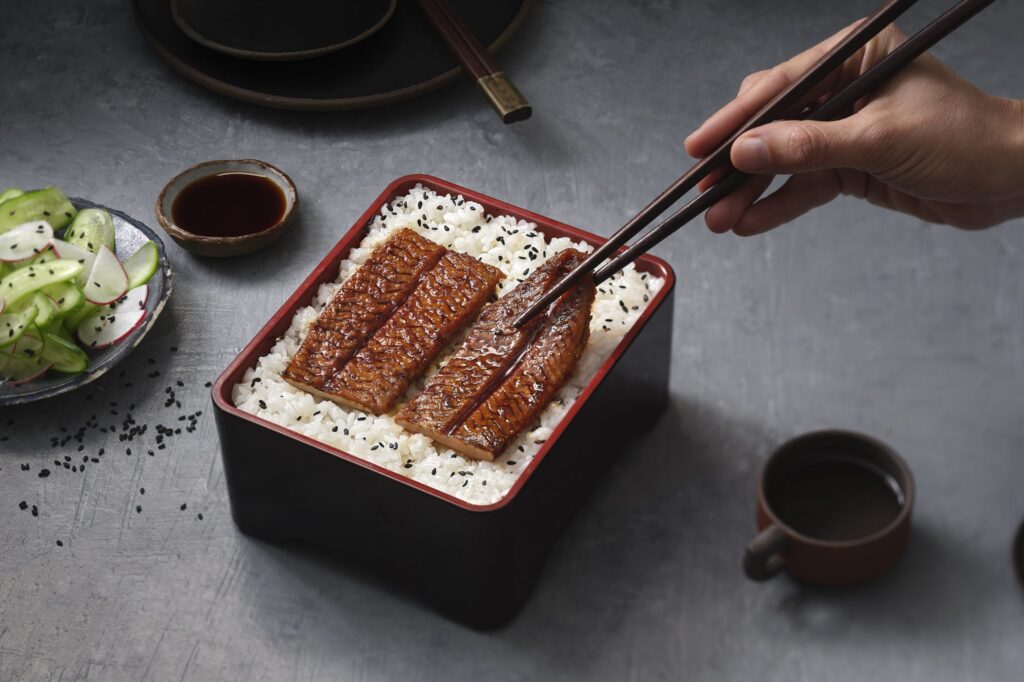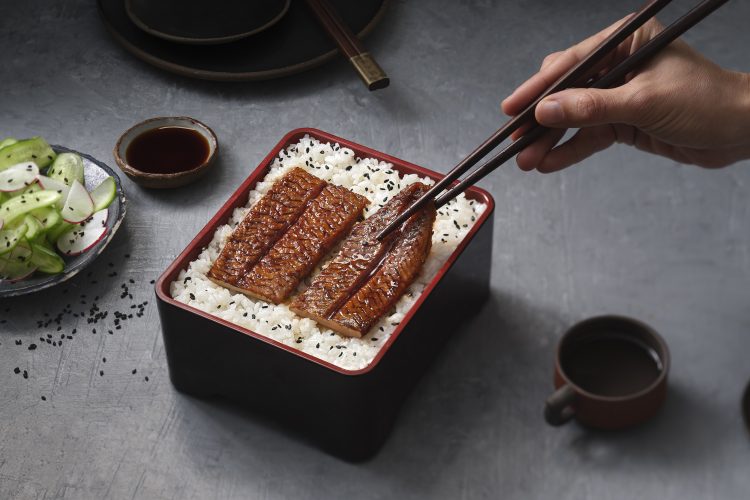Forsea develops its first cultured eel prototype

Israel-based foodtech start-up Forsea Foods shares its mission to save wild eel populations through its first prototype of cell-cultivated freshwater eel.

Photo credit: Anatoly Michaello
Hoping to preserve wild eel populations through innovation, Forsea Foods, a foodtech startup based in Israel has developed its first prototype of cell-cultivated freshwater eel.
According to the company it has “successfully replicated” the traditional Japanese unagi eel (Anguilla japonica) and claims it has the same “tender, succulent texture and rich savory flavor as real eel”.
Although a popular ingredient in Japanese dishes, eel populations in Europe stood at about 5-10 percent of their former levels last year, subsequently sparking the EU to ban the import and export of European eels.
In fact, according to a study carried out by University College London (UCL) and the University of Exeter, in 2023, there was evidence of “widespread, and likely illegal, trading of critically endangered European eels”.
However, Forsea Foods has been working on creating its own cultivated version of the fish. Together with Executive Chef Katsumi Kusumoto, it has developed two popular traditional Japanese dishes – unagi kabayaki (marinated grilled eel over rice) and unagi nigiri.
“The company has achieved a working proof-of-concept that embodies the sensory attributes of real eel meat and is now prepped for scale-up. In the collaboration, Forsea contributes its novel technology for cell-cultivating eel cuts, while Kusumoto contributes his culinary mastery to refine the product to perfection in texture and flavour,” said the company.
Speaking on sustainability and eco-conscious consumers, Kusumoto shared: “Unagi is an enduring favorite in Japan. Its timeless appeal, however, is impacted by a growing awareness among the Japanese population of the need to take a more sustainable approach. It’s been a thrilling journey to join forces with emerging innovators, and working together to deliver the traditional unagi indulgence with a clear eco-conscience.”
First founded in 2021, Forsea Food has a mission to “turn the tide on the downward spiral of the ocean’s seafood populations by developing a cell-cultivated alternatives”. In its own words, the “overfishing of eels has turned this aquatic delicacy into an endangered species”.
It went on to note that the “immense popularity of eel meat in Asia, Europe, and the US likewise poses significant challenges for suppliers who struggle to keep up with the surging demand. This leads to supply bottlenecks, illegal trade, and high prices”.
Discussing innovation in the cultures seafood space, Roee Nir, CEO and Co-Founder of Forsea explained: “This milestone marks a major leap in our journey to deliver delicious cultured seafood products. Forsea is pioneering the fusion of traditional, high-quality Asian cuisine with groundbreaking technology to create the world’s first cultured unagi—one that will provide the consumer with a genuine seafood experience without putting further strain on aquatic life.”
Aleph Farms makes history as world’s first cutlivated beef is approved for sale
Going further the company claims that its cultured eel offers a “nutritious alternative that is free from any antibiotics, hormones or ocean pollutants”. With its first prototype complete, Forsea explains that it is readying to scale-up to fulfill its vision of an abundant eel supply
“Unique to its proprietary method for culturing seafood is its application of organoid technology which allows for the crafting of 3D microtissues composed of fat and muscle. These spontaneously differentiate into edible cells, mimicking the natural process of cell formation. The cell lines self-organize into tissue structures without the need for scaffold support, simplifying the production process, and enhancing scalability,” the foodtech shared.
“This approach should effectively overcome major industry challenges and will ease some of the supply bottlenecks for eel meat. The proprietary practice also allows for the efficient and cost-effective production of cultivated meat by significantly decreasing reliance on costly growth factors.”
Looking to the future, Forsea has estimated that its inaugural product will be ready for commercial launch in 2025 however it is currently seeking strategic partners in Japan and across Asia.
Source: newfoodmagazine.com

